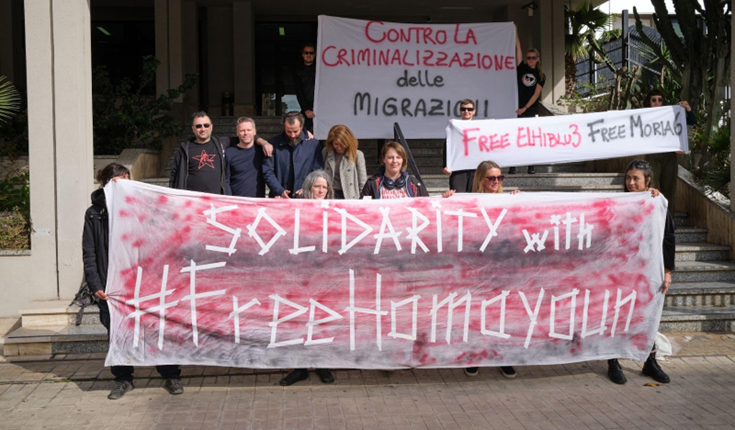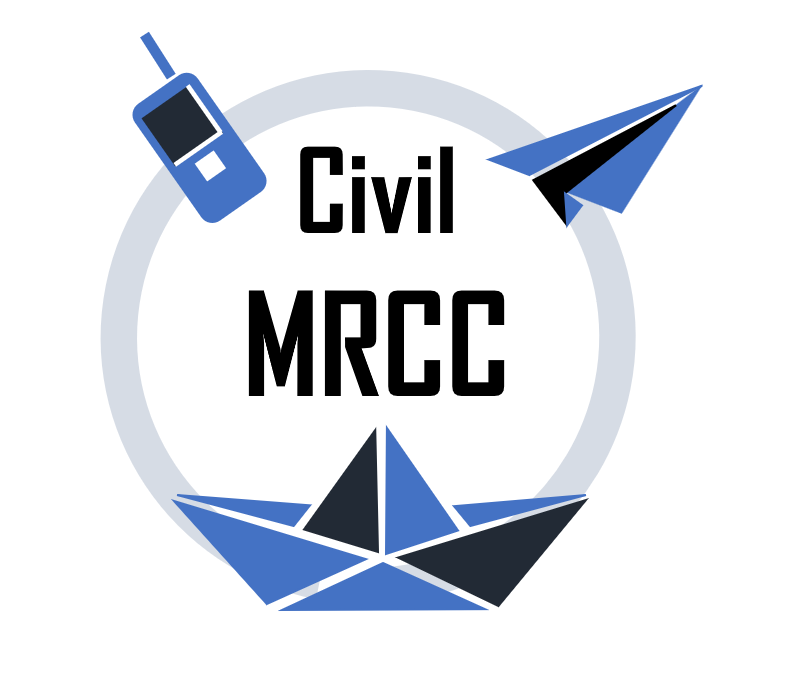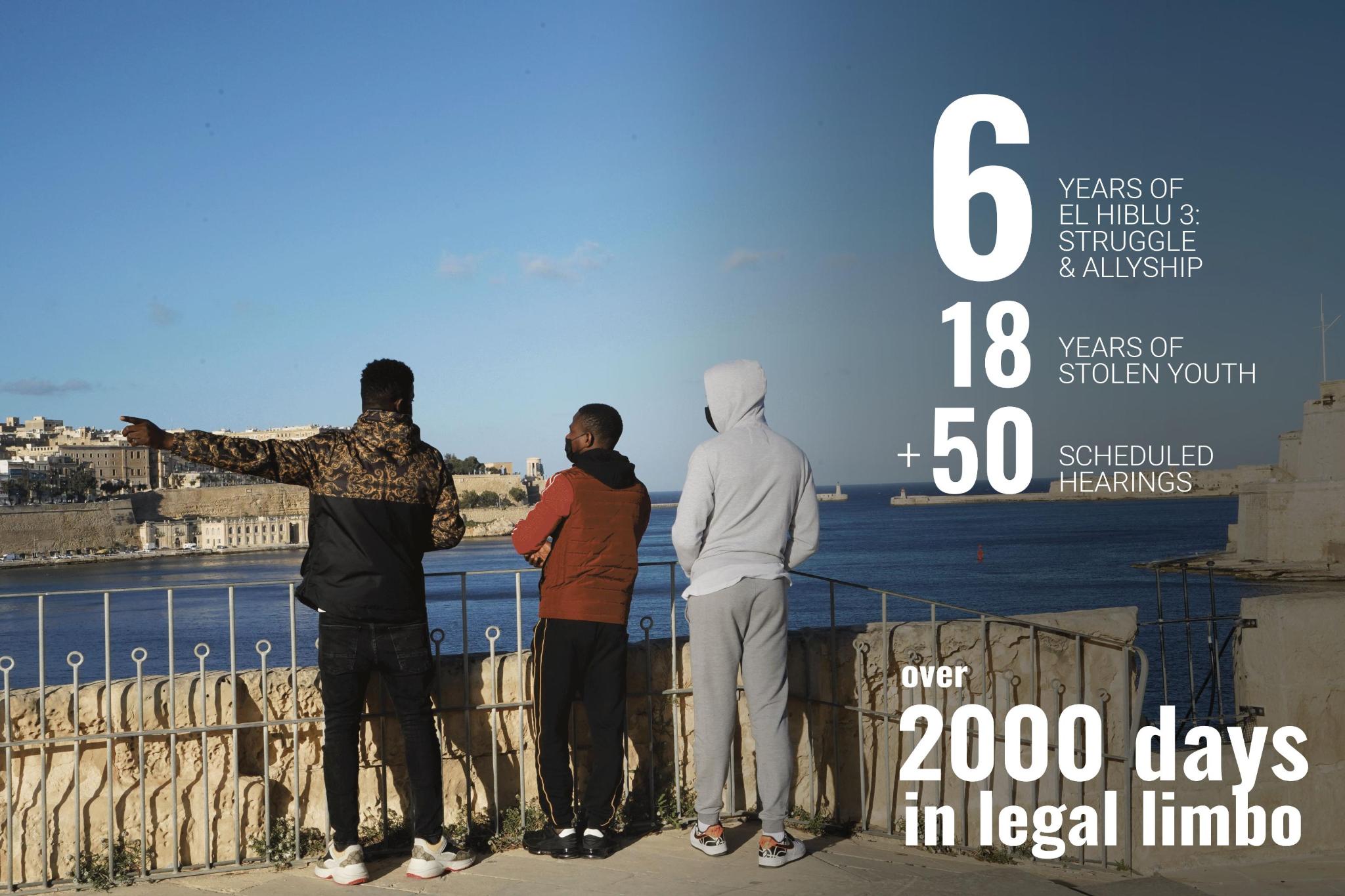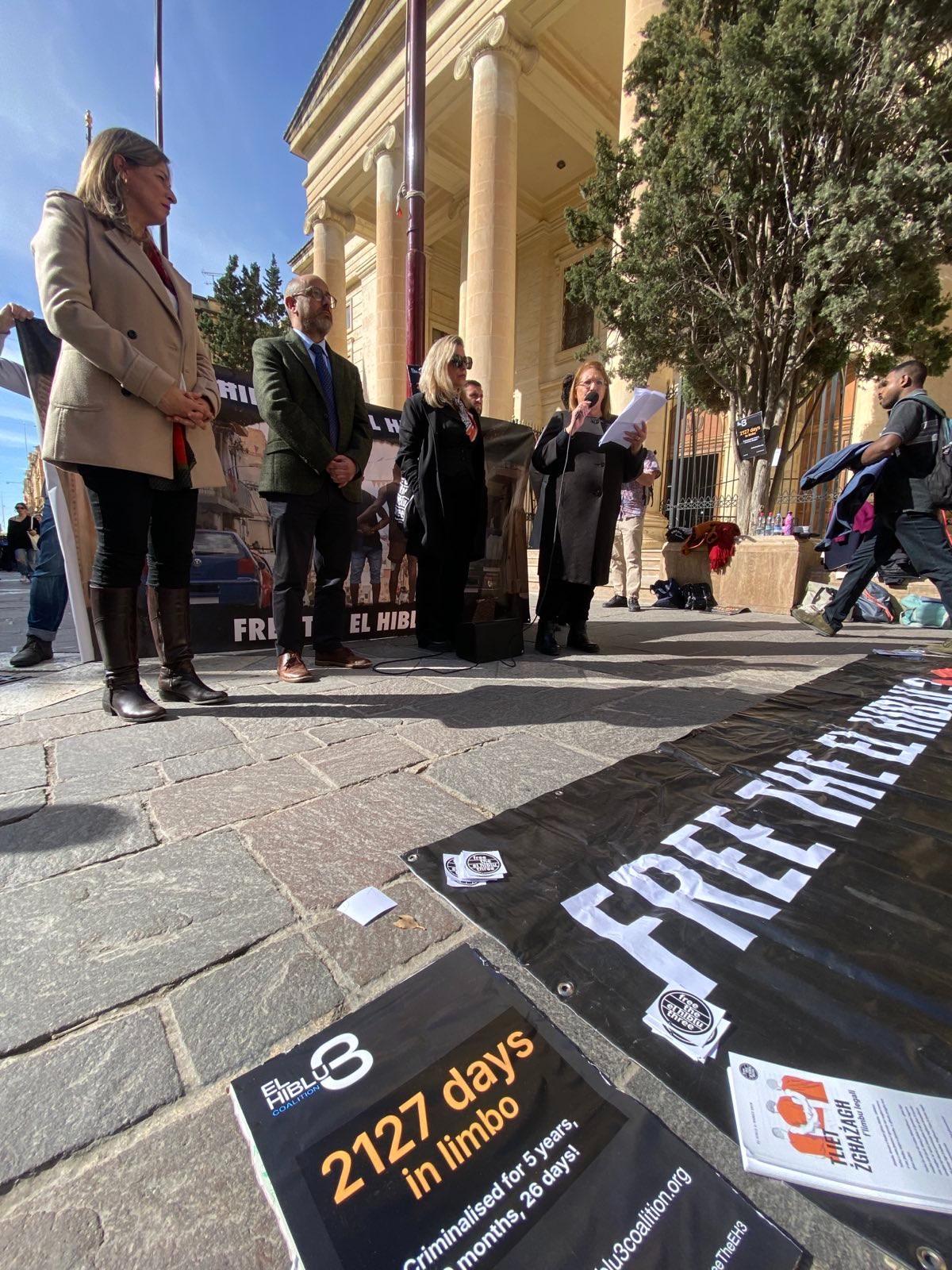IUVENTA crew
The case against the IUVENTA crew, MSF, STC, and VROON has shifted. On February 28th, the prosecutor’s office unexpectedly requested dropping the charges, potentially ending the trial and allowing for the return of confiscated goods, including the IUVENTA. The prosecution justified its “change of mind” by the lack of evidence. The cross-examination of the prosecution’s main witnesses likely had a significant impact. The prosecution had to recognize that the witnesses’ limited credibility and inconsistent testimony would not support a conviction! The judge will announce on 19 April whether he wants to dismiss the case or open the trial.
As long as the violence of the border regime continues, none of this can feel like a real victory. Yet, some elements of the IUVENTA case might represent small steps towards the dismantling of Fortress Europe as well as a shift in the framework of the criminalisation of solidarity with and between people on the move.
First episode: “7 years of legal proceedings crumble in 3 months when assessing basic facts.”
Thanks to the defense’s meticulous and offensive work, the judge was led to consider our counter-evidence. Finally, the judge took control of the prosecution’s work and ordered the disclosure of extensive Italian MRCC data, including communications and ship tracking data. We were relieved to have persuaded the judge to this extent. Analyzing the data would likely validate our claims and discredit the testimonies of the supposed eyewitnesses, along with the prosecution’s assertions.
On 14 December the prosecution’s main witnesses were summoned for cross-examination. Floriana Ballestra and Pietro Gallo, two employees of the security company IMI Security Service on board the VOS HESTIA, who in September 2016 denounced the IUVENTA to the authorities and right-wing politicians. We were very skeptical! Not only because our witnesses were all rejected as “not relevant,” but also because it is very unusual for the prosecution to call the main witnesses at the preliminary hearing. What was the plan?
Considering what we knew about them – doubts about their credibility and one withdrawing accusations in 2019 – the prosecution’s decision seemed incomprehensible to us. Yet, we hoped their court appearance might prompt the judge to dismiss the case, an outcome previously deemed unlikely.
“We are not afraid of the outcome. It can only confirm what we have been saying for years: this trial is politically motivated, it has no basis in criminal law, it should never have started!”
Indeed, the presence of “reliable and trustworthy eyewitnesses” served to isolate the IUVENTA case. These eyewitnesses, former police officers, were meant to lend legitimacy to the case. However, authorities conveniently ignored that they had been expelled from the police force for deceit, fraud, defamation, and misconduct. The police knew all this from the beginning. They tapped their phones to verify their testimonies, exposing their dishonesty and ulterior motives early on: one wanted to return to the police force, the other wanted a prestigious position in Italy’s far-right Lega Nord party, as evidenced by contacts and exchanges of information with Matteo Salvini, revealing the political background. Trapani’s prosecution ignored the problematic past of its witnesses to use the testimonies as a pretext for a new level of confrontation with SAR NGO’s, which eventually led to the seizure of the first rescue vessel.
After the witnesses’ initial refusal to appear – with the judge threatening to bring them by force – they were finally heard on 10 February. It was not only their lack of credibility that was shocking, but also the inconsistency, lack of knowledge and vagueness of their testimony, riddled with opinions, silly assumptions, and racist prejudices.
At the conclusion of 10 hours of cross-examination, the stage was set for the final phase of the preliminary hearing: the closing arguments of all parties and the judge’s decision. Having heard the witnesses, it seemed inconceivable to us that the judge would come to any other conclusion than to dismiss the case! However, in a case that was initially orchestrated to target and discourage supporters of people on the move, an overtly political trial, there is still uncertainty about the future.
Second episode: Prosecution retracts. 7 years too late.
The final hearings were scheduled to take place from 28 February to 2 March. On the first three days, closing statements of the prosecution, the Ministry of the Interior (joining as a civil plaintiff) and the defense lawyers were to be heard. The judge’s decision was expected on the last day. The surprise was not long in coming.
The same prosecutor, who pressed charges with great conviction in early 2021 and who had been relentlessly aggressive throughout the trial, recommended the dismissal of the case due to lack of evidence and of doubts about the criminal intent of the accused as well as the release of the IUVENTA ship. They admitted that their main witnesses lacked credibility, and no reliable evidence of wrongdoing by the defendants could be found. They acknowledged that the Italian MRCC had all the necessary information and control over the operations, coordinating NGO rescue missions and disembarkation in Italy. In some passages, they even argued that there was no basis for a charge under Article 12 – aiding and abetting unauthorized immigration – since in sea rescue cases there was no irregular border crossing and all those rescued had been “duly” registered with the authorities.
Our surprise and relief at the prosecution’s “change of mind” and its possible impact on the judge’s decision was mixed with anger and disbelief. All the crucial and exculpatory evidence should have been dealt with seven years ago, in the investigation phase: neither this long trial nor the seizure of rescue assets can be justified by this sloppy work of the investigating authorities! This was also emphasized in Mary Lawlor’s report, Special Rapporteur on the situation of human rights defenders, who sent a team member to observe the final hearings: “As the lawyers for the crew have stated, this raises serious, troubling questions about the investigative process in Italy. Surveillance and the interception of communications must only be carried out where strict conditions are met. Criminal charges should only be pressed after a thorough investigation and the collection of all available evidence. These principles were clearly not followed in this instance. And yet the shocking inadequacy of the investigation cannot fully explain how things got to this point.”
In the following days the defense lawyers presented their closing statements, which went far beyond the demolition of all aspects of the indictment. It was about the “right to rescue” and the “injustice of criminalizing migration and solidarity”! The proceedings concluded with a unified motion from the defense, urging an investigation into potential misconduct or manipulation by the police or prosecution during the investigation phase.

Picture: Ben Cowles
Third episode: Let’s make solidarity a threat again!
At this stage, and pending the judge’s final decision, the prosecutor’s recommendation to close the case cannot be considered a victory. The smear campaign against the civil fleet and the reinforcement of a narrative linking migration and sea rescue to criminality have been far too successful.
Its consequences are irreversible. As stated by Mary Lawlor, from the beginning:
“the case against the IUVENTA-crew has borne all the hallmarks of the criminalization of solidarity: designed not only to put an end to their activities, but to denigrate those same activities in the eyes of the public. (…) As I have previously said, whether openly stated or not, restricting the space for solidarity with migrants has been a policy of successive Italian administrations. Combined with a lack of support for search and rescue by the EU more broadly, as well as a clampdown on migration and asylum in the EU in general, it has contributed to making the Central Mediterranean the world’s deadliest migration route.”
According to the IOM over 10,000 individuals have lost their lives in the Central Mediterranean since the IUVENTA was seized in the summer of 2017. Additionally, more than 200.000 people have been forcibly returned to Libya. Each of these tragedies could have been prevented, and the IUVENTA could have played a crucial role in saving lives – if only it had not been seized.
Furthermore, as expressed by Kathrin Schmidt, IUVENTA defendant, after the prosecution’s request :
“Today was an important step towards the decriminalization of sea-rescue. However, let’s be clear that unlike the IUVENTA trial, the struggle for freedom of movement is not even remotely coming to an end. People on the move continue facing systematic repression and mass incarceration. Nobody is free until everyone is free!”
New strategies obstructing NGOs work, new agreements deteriorating the right to asylum or the increased borders’ militarisation are clear indicators that European states are moving forward into the war against people on the move.
Despite the fact that the IUVENTA case, even if it is finally closed, cannot be considered a victory, we believe it is necessary to highlight some elements that, in their political and legal aspects, can contribute to the fight against the European border regime. The recognition of the right to solidarity by the court in Trapani could set a precedent for prioritizing the rights of migration against the protection of borders by states.
Different from prosecution, the defense teams seek more than just acknowledgment of the lack of evidence for a crime; they demand full recognition that the alleged crime never occurred. They argue that beyond the specifics of the events, the entry of rescued individuals into Italy should be deemed legal under all circumstances. The defense’s final conclusions emphasized the necessity of recognizing that neither migration nor rescuing people on the move can be considered criminal acts. The possibility that Trapani’s judgment contains elements along these lines contributes to all ongoing efforts to abolish European and Italian laws that allow the criminalisation of solidarity with and between people on the move.
“ Solidarity is our response to their border regimes! ”
Latest news and background: iuventa-crew.org




